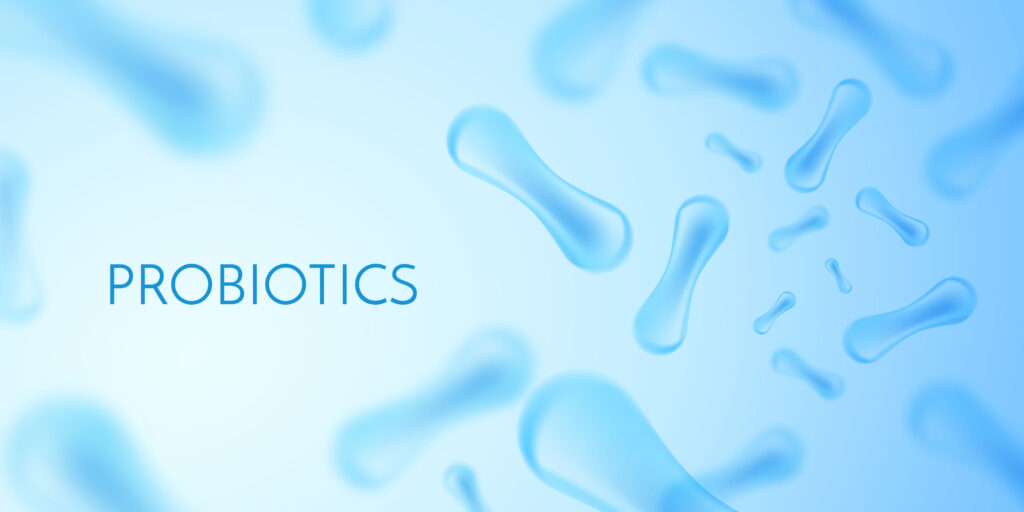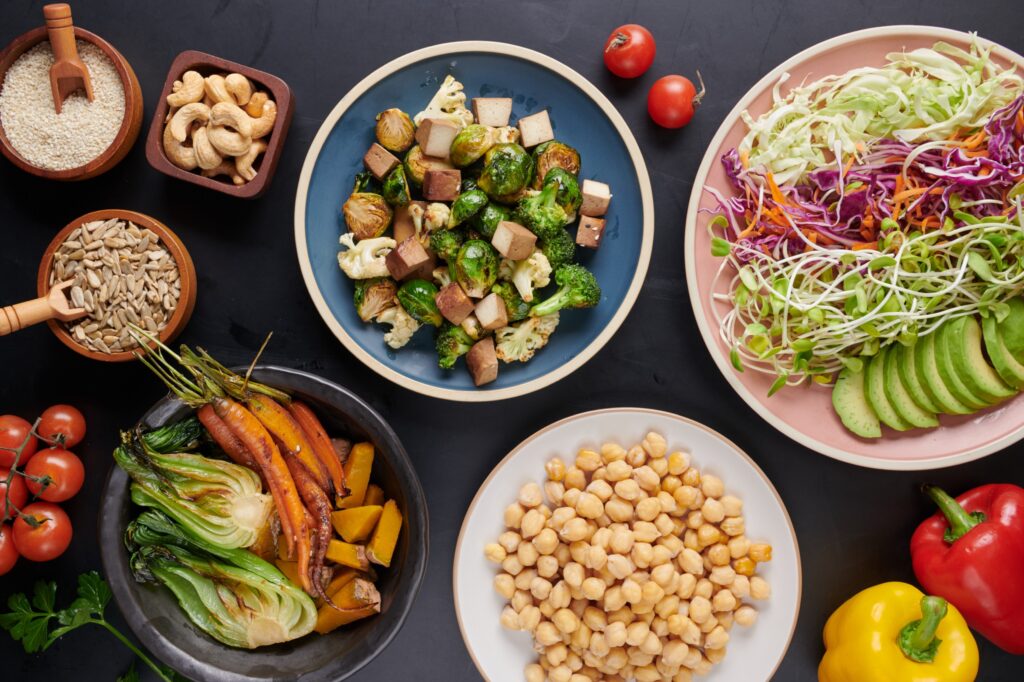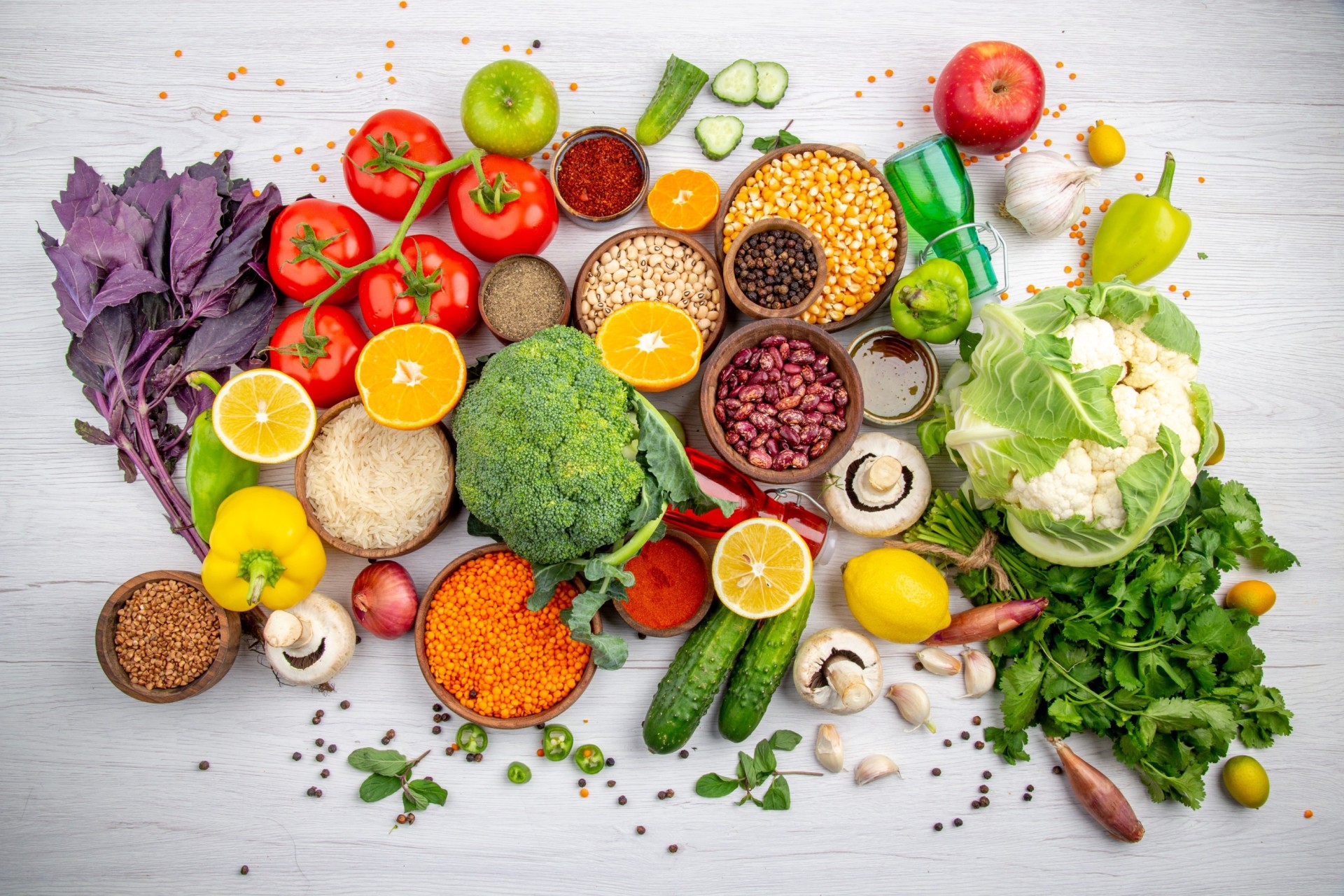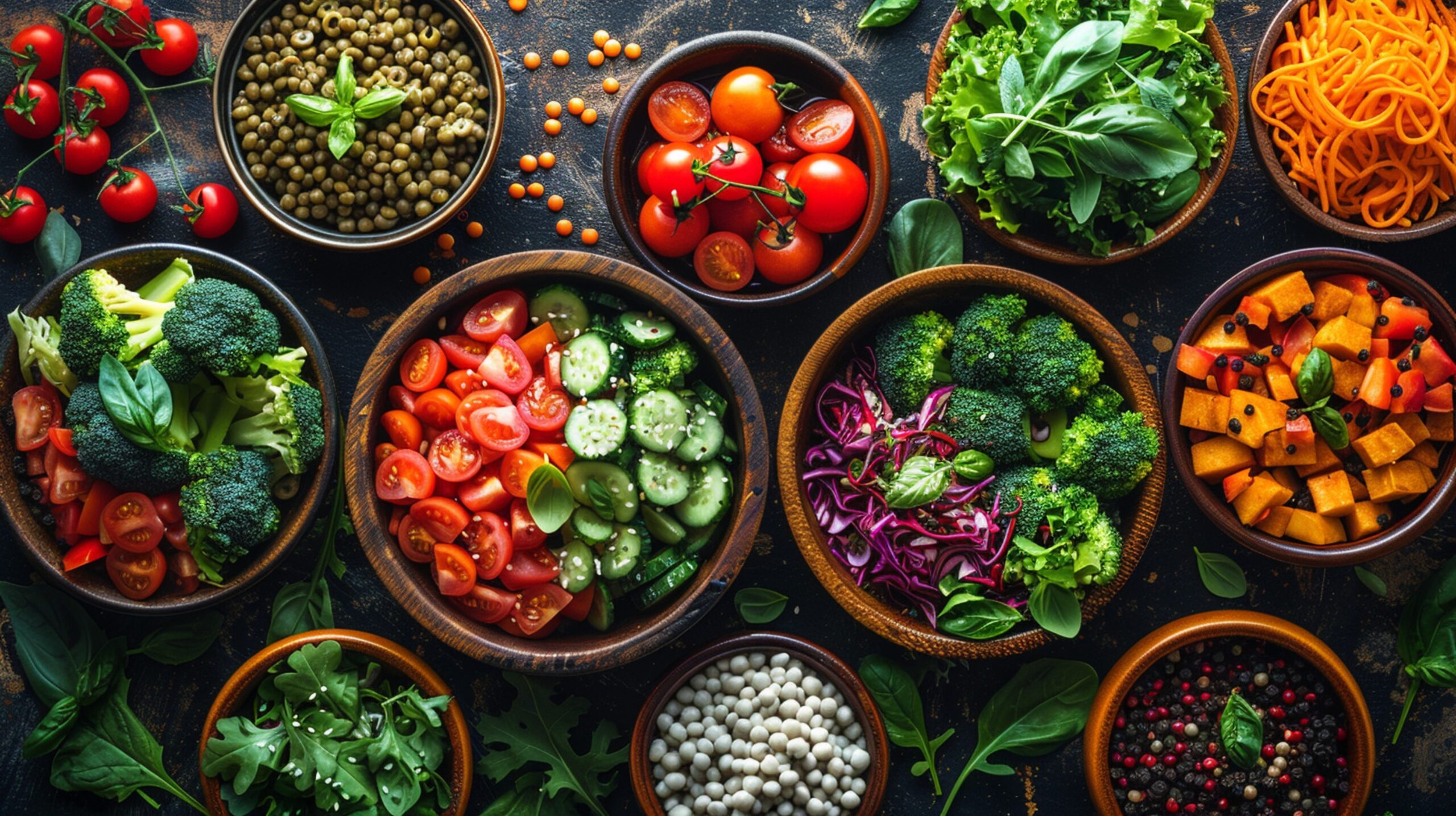Are you ready to strap in those greens and turn your gut into a plant-powered paradise? First of all, if you are unaware, the vegan diet is rich in plant-based foods and devoid of animal products. In recent years, it has gained some popularity for its positive impact on the environment and its health benefits. In 2024, the number of vegans was estimated to be 2.5 Million with more and more people trying to adopt the vegan way of life. But how good and sufficient is a vegan diet when it comes to gut health? While a vegan diet can provide many essential nutrients for gut health, it’s also important to ensure adequate intake of key nutrients to support a thriving microbiome. So, let’s veg out and explore the secrets of a vegan microbiome.
Abundant in Fiber and Prebiotics!

Fiber is a cornerstone of a good diet and a highly important nutrient for gut health. Fortunately it is found abundantly in fruits, vegetables, whole grains, legumes, nuts, and seeds. It serves as fuel for the good gut bacteria, promoting their growth and diversity. That aside, soluble fiber, found in foods like oats, apples, and beans, forms a gel-like substance in the gut. This helps regulate bowel movements and helps maintain a healthy digestive system. Further, the insoluble fiber, found in foods like leafy greens, broccoli, and whole grains, adds bulk to stool and supports regularity.
Moving on, prebiotics are another important component of a balanced diet that supports gut health. Prebiotics are the non-digestible fibers that serve as food for good gut bacteria, helping them thrive and flourish in the gut. Vegan foods rich in prebiotics include onions, garlic, leeks, asparagus, bananas, and Jerusalem artichokes. By incorporating these foods into their diet, vegans can promote the growth of beneficial bacteria like Bifidobacteria and Lactobacilli, which contribute to a healthy microbiome. So, a person who practices a vegan diet will never have to worry about their fiber and prebiotic intake.
Probiotics in Vegan Food

Probiotics are the live beneficial bacteria found in fermented foods which form colonies in your gut, fight the bad bacteria for space, and hence keep your gut healthy. While the richest sources of probiotics are found in milk based fermented products, vegans have plenty of sources of probiotics. Fermented foods like sauerkraut, kimchi, tempeh, miso, and dairy-free yogurt contain probiotics that can help replenish and maintain a healthy balance of gut bacteria.
In addition to traditional fermented foods, the popularity of vegan probiotic supplements has increased now. These supplements offer a convenient way for individuals to boost their probiotic intake. These supplements often contain strains of bacteria such as Lactobacillus and Bifidobacterium, which are known for their beneficial effects. Whether through fermented foods or supplements, consuming probiotics regularly can support digestion, boost the immune system, and improve overall health.
Less Abundant Nutrients in Vegan Diet You Need To Monitor
Like everything else in the world, vegan diet too has its cons as there are certain nutrients that aren’t abundantly found in a vegan diet but are necessary for a healthy gut. These are:
Omega-3 fatty acids – Omega-3 fatty acids have anti-inflammatory properties and may help support a healthy gut by reducing inflammation and promoting the growth of beneficial gut bacteria. While they are found primarily in fatty fish, they can also be obtained from plant-based sources on a vegan diet. Foods like flaxseeds, chia seeds, hemp seeds, walnuts, and algae-based supplements are rich in alpha-linolenic acid (ALA). ALA is a type of omega-3 fatty acid that can be converted into longer-chain omega-3s like EPA and DHA in the body.
Vitamin B12 – B12 is a nutrient of particular concern for vegans, as it is primarily found in animal products. But fortified foods like plant-based milk, breakfast cereals, nutritional yeast, and meat substitutes can provide a vegan-friendly source of vitamin B12. It’s very very important for vegans to ensure they consume an adequate amount of vitamin B12. It supports nerve function, DNA synthesis, and the production of red blood cells, all of which are highly important for overall health.
Iron – Unfortunately, plant-based sources of iron are not as readily absorbed by the body as heme iron found in animal products. However, iron-rich foods like lentils, tofu, spinach, quinoa, and fortified cereals can help meet iron needs on a vegan diet. Also, consuming vitamin C-rich foods like citrus fruits, strawberries, and bell peppers alongside iron-rich foods can enhance iron absorption in the body. So, as a vegan, please monitor your iron intake as it could become a cause of concern in future.
Calcium – Once again, dairy products are the most common and abundant source of calcium, which is really important for bone health and muscle function. Vegans however, can obtain this nutrient from fortified plant-based milk, tofu, leafy greens like kale and collard greens, almonds, and sesame seeds. Also, Vitamin D helps the body absorb calcium better so be sure to take it in abundance from sunlight exposure, fortified foods, or supplements.
So to conclude, it requires some planning but a vegan diet too can provide all essential nutrients for gut health, including fiber, prebiotics, probiotics, omega-3 fatty acids, vitamin B12, iron, calcium, and vitamin D. By consuming a variety of plant-based foods rich in these nutrients into their diet, vegans can support a balanced gut microbiome, promote overall health, and do their part in helping nature. However, it’s important for vegans to pay attention to nutrient intake and consider supplementation or fortified foods to ensure they meet their nutritional needs. With careful planning and mindful food choices, vegans can enjoy the health benefits of a plant-based diet while supporting their complete physical and mental health. So, keep your plate colorful, your gut joyful, and your vegan journey delightful!
REFERENCES
3. NIH – https://www.ncbi.nlm.nih.gov/pmc/articles/PMC6478664/
4. Casa de Santa – https://casadesante.com/blogs/probiotics/what-vegan-foods-are-prebiotic
5. Tofubud – https://tofubud.com/blogs/tips/vegan-probiotics
6. Healthline – https://www.healthline.com/nutrition/7-nutrients-you-cant-get-from-plants
FAQ’s
Q. Do vegans have better gut health?
A. Yes, vegans often have healthier gut microbiomes due to their high fiber intake from plant-based foods, along with regular consumption of probiotic-rich fermented foods. This promotes microbial diversity, aiding digestion, bolstering immune function, and potentially reducing inflammation.
Q. Can a plant-based diet heal your gut?
A. It is possible. A plant-based diet rich in fiber, prebiotics, and probiotics can support gut health by promoting a diverse microbiome, aiding digestion, reducing inflammation, and hence, potentially improve overall gut function and well-being. However, it is necessary to couple it with certain nutrients like Calcium, Omega 3 Fatty Acids, Iron, Vit B12, etc which aren’t abundantly found in a vegan diet.
Q. Are there negative side effects of being vegan?
A. It is a fact that a vegan diet offers numerous health benefits, and if planned properly is probably one of the healthiest diets. However, potential drawbacks include nutrient deficiencies especially, calcium, vitamin B12, iron, omega-3s, if not properly planned. Some may also experience digestive discomfort initially due to increased fiber intake. Social challenges and limited food options in certain settings can also impact adherence and satisfaction.
Q. Who should not go vegan?
A. Those with certain medical conditions requiring specialized diets, such as certain nutrient deficiencies, gastrointestinal disorders, or metabolic disorders, should approach a vegan diet cautiously and under medical supervision. Also, individuals with food allergies or sensitivities may find it challenging to meet their nutritional needs on a vegan diet without careful planning and monitoring of ingredient labels.
Q. How do you know if you should stop being vegan?
A. Signs indicating a need to reconsider a vegan diet include persistent nutrient deficiencies despite supplementation, unexplained weight loss or gain, frequent digestive issues, fatigue, hair loss, and changes in mood or mental clarity. Once again, consultation with a healthcare professional can help address concerns and determine appropriate dietary adjustments.

